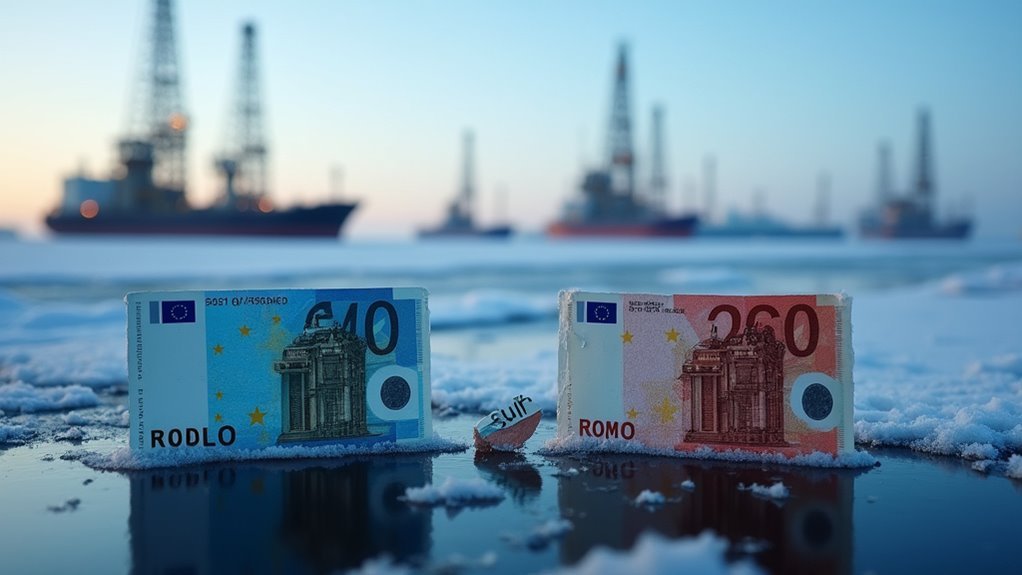Waves of economic punishment keep crashing against Russia’s shores. The European Union has activated its 16th sanctions package, adding 48 individuals and 35 entities to its ever-growing blacklist.
The EU’s sanctions tsunami continues to batter Russia’s economy, with dozens more targets swept into its expanding blacklist.
Chinese companies and individuals supporting Russia’s military have also been added to EU sanctions lists.
It’s like watching a financial game of whack-a-mole, with EU regulators frantically trying to plug every loophole Moscow might exploit.
The numbers are staggering. €200 billion in Russian central bank assets sit frozen in EU vaults, while 13 Russian banks have been kicked out of SWIFT – the financial equivalent of being uninvited from the world’s most exclusive club.
The EU isn’t just hitting Russia’s wallet; it’s going after everything from oil tankers to computer chips. Imports of aluminium and alloys from Russia face significant new restrictions.
Energy markets have become the new battleground. Russian crude oil? Not welcome in EU ports. Want to sell oil exploration software to Moscow? Think again.
The EU is determined to wean itself off Russian energy, even if it means some uncomfortable winters ahead. They’ve even banned the kind of specialized software that helps Russia find new oil deposits – talk about playing hardball.
The transport sector hasn’t escaped unscathed. A whopping 74 vessels joined the infamous ‘shadow fleet’ sanctions list, while flight bans now extend to third-country carriers crazy enough to keep operating in Russia.
Even Russian airports and ports face transaction bans. It’s getting lonely in Russian airspace.
But here’s the kicker – all these sanctions need unanimous approval from 27 EU member states every six months. That’s like trying to get 27 cats to agree on dinner time.
Meanwhile, there’s heated debate about whether to use those frozen Russian assets to help rebuild Ukraine. The legal complications? Don’t even ask.
The EU’s also cracking down on sneaky workarounds. New rules force European exporters to play detective with their third-country customers, making sure their goods don’t end up in Russian hands.
It’s a complex economic chess game, and Europe’s playing for keeps – even if some pieces occasionally slip through the cracks.








